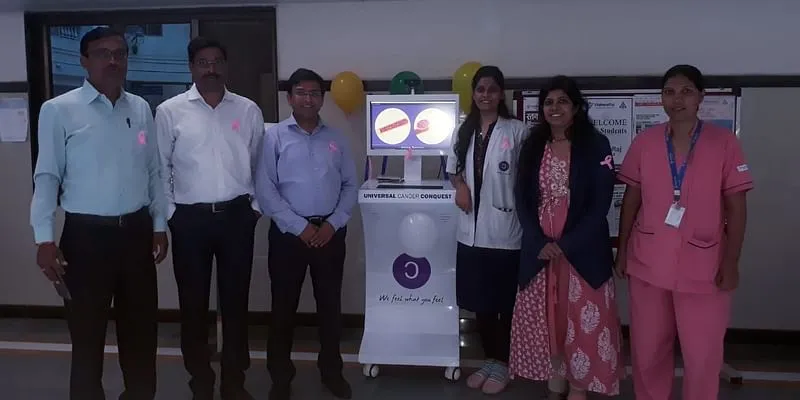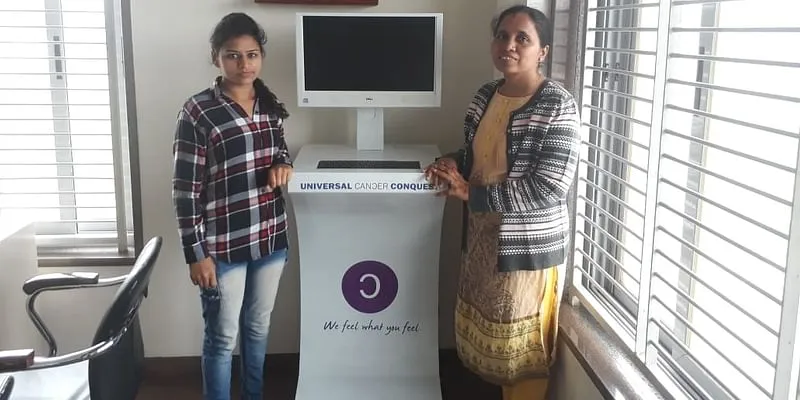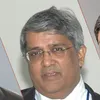This healthcare startup makes cancer treatment accessible and affordable for rural India
Pune-based Universal Cancer Conquest (UCC) claims to have reached 5,000 patients in the last five years, and detected another 5,000 potential patients through screening. It is now building strong rural healthcare infrastructure and ecosystem for cancer treatment and care.
Working as a senior consultant for Capgemini in the US, Ajay Balai was visiting India when one of his relatives was diagnosed with cancer. Despite being in a developed city like Pune, he quickly realised cancer treatment facilities and services were scattered and not easy to access.
Ajay noticed a distinct lack of organised cancer treatment facilities and awareness among the general population. The data was alarming — he observed India had only one cancer care establishment for every six million people.
The problems and shortfalls his relative struggled with during the treatment phase inspired him to cancel his return to the US, and give up his steady job. He decided to stay back and address the challenges he had seen.
Roping in co-founder Niraj Bora on his new-found mission, Ajay in 2015, incubated Universal Cancer Conquest (UCC) under Pushpam Group — where the third co-founder, Dr Sachin Chopda, worked.
In an exclusive interview with SocialStory, Niraj Bora says, “Not only in urban areas but also in rural areas many people die of cancer, as they are not aware of the disease and its symptoms. Especially in rural areas, people don’t have treatment available nearby. Through UCC, the three of us set out on a mission to provide end-to-end cancer care services.”

Universal Cancer Conquest (UCC) cofounders Ajay Balai (left) and Niraj Bora (right)
In urban centres, UCC sets up special cancer care facilities in leading hospitals and runs the oncology departments. It offers 360-degree cancer-related services under one-roof, combining surgical treatment, radiotherapy, and anticancer agent treatment, according to the needs and comfort of patients.
At its centres, it also provides patients access to people, technology, and other knowledge resources on-call, and supported by the UCC network.
“We work on revenue-sharing arrangements with hospitals. Through our different tie-ups, we ensure we have enough hospital options to give to the patients who want to get treatment, in terms of geography, available infrastructure, etc.,” Niraj explains.
With this model, he claims UCC has reached 5,000 patients in the last five years, and detected another 5,000 potential patients through screening.
The startup is now focussing on building strong rural healthcare infrastructure for cancer care, as well as a comprehensive cancer-care ecosystem, between rural and urban areas.
The rural challenge
People living in rural areas face the most difficulty in availing cancer care facilities. If they are lucky, a nearby hospital may have the required facilities, although their quality cannot be guaranteed.
In most cases, families have to travel long distances to urban centres to access cancer care facilities, which significantly increases the expenditures involved. The out of pocket expenditure on cancer hospitalisation can go up to 2.5 times of overall average hospitalisation expenditure.
“Cancer rates are increasing, and it has one of the highest fatality rates among the growing classes. But India has less than 4,000 oncology specialists among a population of over 130 crores. Thus, accessibility is a huge problem, and patients need to travel a lot while undergoing treatment,” Niraj says.
According to the Indian Council of Medical Research (ICMR), more than 25 lakh people in India are suffering from one type of cancer or the other, and an average of 10 lakh individuals are diagnosed with the illness every year.
Much of the cancer care survival for these individuals has to do with early diagnosis and access to cutting-edge medical technology. Otherwise, it can lead to high treatment costs and poor chances of survival.

Staff at an UCC centre
The problem is accentuated for developing, low, and middle-income countries like India due to poor geographic coverage of medical services and negligible financial protection in health, according to an NCBI article on the economic burden of cancer in India.
Solving for the underserved
Looking to address the problem of accessibility, UCC started offering its facilities to smaller and underserved towns that struggle to access quality specialised healthcare facilities.
“We help in laying down the crucial building blocks for high-quality diagnostics and treatment services through our centres in partnership with largely local hospitals and nursing homes. We have a presence across 10 small cities such as Shirdi, Baramati, and Sangamner in Pune district. In Nashik district, we have extended our reach to over 70 villages in a five-kilometre radius from our centre,” says Niraj.
UCC equips its centres to handle several forms of cancer treatment at the town level, thus cutting down the frequency of visits to expensive and crowded urban centres. The UCC kiosks at the centres are equipped with crucial facilities, including electronic medical records (EMR), its online second opinion portal Samiksha, and video-conferencing, through which oncologists can offer guidance and advice.
In the case of complex treatments, the centre specialists refer patients to UCC centres in urban areas.
As cancer treatment is expensive, UCC partners with NGOs and other charity organisations to assist and aid needy families with their financial and logistics needs. These organisations work with UCC to help plan the treatment and provide timely interventions for patients.
As some charities provide assistance based on their charter mandate, UCC only recommends a case to the charity. The charity works to understand the specific case and decide the nature and quantum of association with the patient.
UCC makes it clear that it does not guarantee help to every case, but says it assists the family and friends to strive and meet the goals as needed.

UCC's Samiksha interface to access second opinion portal
COVID-19 impact and future plans
“At present, many of our patients take their chemo sessions in our centres at the town level, if not for which they’d have to travel to the city each time. We also ship the medicines periodically to them as per prescription, so that they don’t have a problem getting it easily,” Niraj says.
He adds, “Our partnership with NGOs in rural areas has helped us provide screening services and successfully detect several asymptomatic cancer cases, which are more common than we think. The partnership model has helped us detect early-stage cancers, particularly since many patients have not been able to travel.”
Besides high cost and logistical challenges, the COVID-19 pandemic has emerged as another reason why people are apprehensive about travelling to urban areas for treatment.
With patients pushing and postponing treatment to avoid stepping out and entering a hospital with COVID-19 cases, the situation is tricky to solve.
“Further, with COVID-19 impacting the whole country, hospitals in rural areas are short-staffed. With time, everyone is realising that the virus is not going anywhere, and that treatment should resume. In such a grave situation, we have been helping rural hospitals in providing top-notch cancer treatment to patients. We actually had our best quarter in Q1 since it’s an essential service,” he says.
Going forward, Niraj admits that building awareness will take more time, as patients are more used to dealing with a single doctor or hospital rather than a new-age cancer care startup.
But he remains optimistic since UCC has found a healthcare model that works. It is now looking at more tie-ups under the same model to expand in Maharashtra in Tier-II cities and surrounding rural areas.
Edited by Suman Singh









